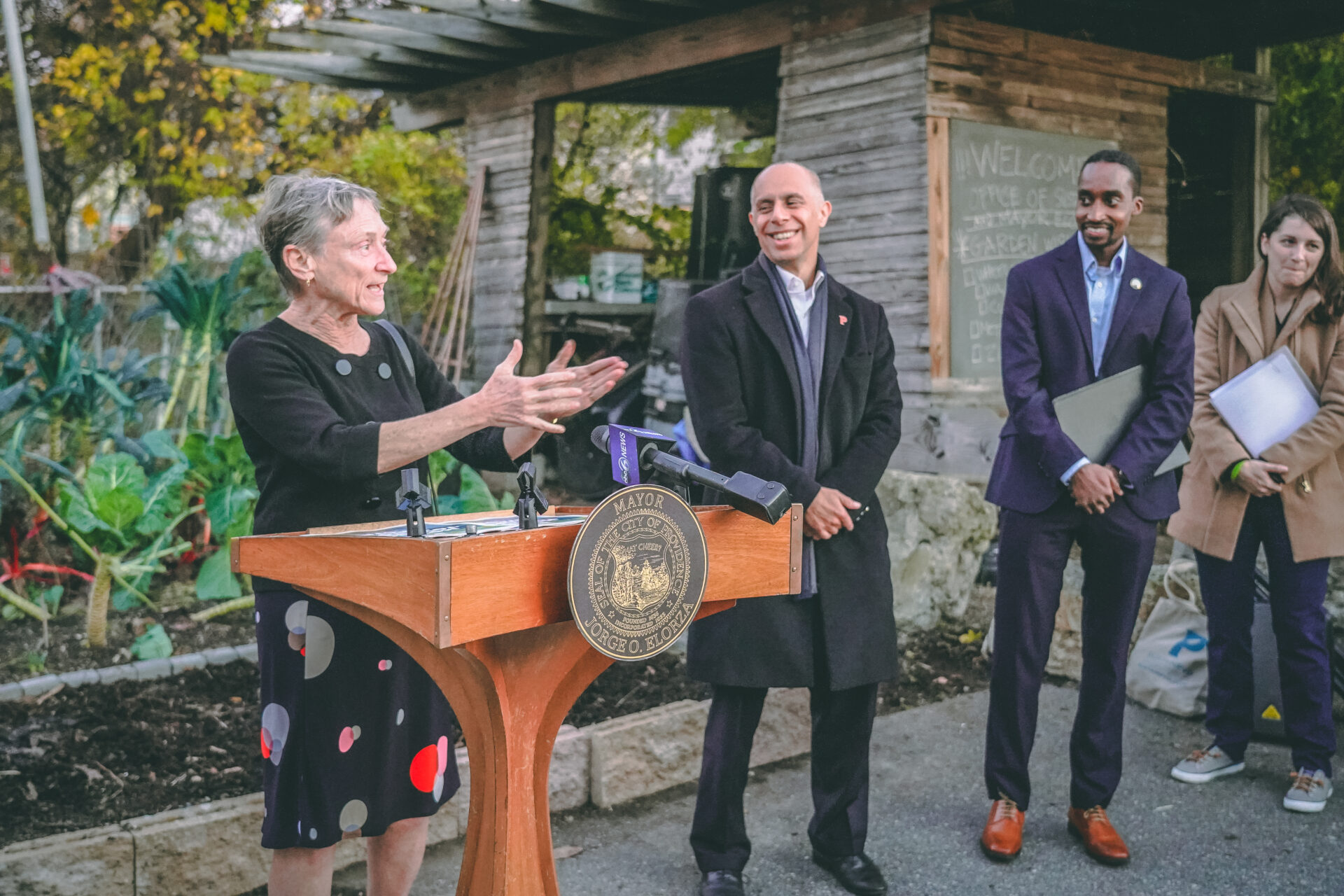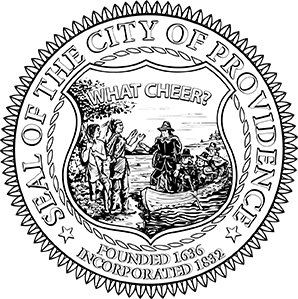
Providence announces planned expansion of community composting sites citywide
November 18, 2021
PROVIDENCE, R.I. — Mayor Jorge O. Elorza today joined Councilman John Goncalves (Ward 1), Zero Waste Providence member Debbie Schimberg, Director of Sustainability Leah Bamberger, Deputy Director of Public Works Maureen McManus, local compost businesses and community partners to release the Providence Municipal Compost Report, Moving Towards Zero Waste: A Residential Compost Assessment of Providence, RI. The report includes a comprehensive analysis of current composting practices in Providence, recommendations to eliminate food waste from the residential waste stream and strategies to meet Providence’s composting and waste reduction goals.
“Transforming food and organic waste into compost is a critical step to achieving Providence’s zero waste goal,” said Mayor Jorge O. Elorza. “This report provides a catalog of recommendations that will help make it easier for residents to compost material instead of tossing it in the trash. Composting, whether at home, a community compost center, or a private curbside service saves money, eliminates greenhouse gas pollution and creates rich soil for next spring’s garden.”
Moving Towards Zero Waste: A Residential Compost Assessment of Providence, RI is the result of a January 2021 resolution, passed by the Providence City Council and signed into effect by Mayor Elorza, requesting the Office Sustainability, Department of Public Works, Environmental Sustainability Task Force and other community groups to create a residential composting plan for the City of Providence. The report was compiled based on 400+ survey results from Providence residents and in partnership with Zero Waste Providence, a grassroots organization with a mission of resource recovery.
“In January 2021, my colleagues on the City Council joined me in calling for a review of expanding composting in the City of Providence,” said Councilman John Goncalves. “The composting process turns organic matter into a source of community health and wealth. It is a practice that improves our local environment, cuts down on the amount of waste sent to landfills, and helps develop back-yard and community gardening. I look forward to working with our community partners to learn more about how residents and our city offices can further support this incredibly beneficial practice.”
The report outlines that climate benefits of composting include eliminating methane pollution, a greenhouse gas pollutant that is more than 80 times more harmful to our climate than carbon dioxide. Methane is released into our atmosphere when organic material breaks down in landfills while deprived of oxygen. Composting also creates healthier soils that need fewer chemical fertilizers with the potential to leach into waterways like Narragansett Bay. Soils with higher amounts of organic material like compost retain more water, making neighborhoods more resilient to drought and flooding. All of these factors contribute to improved water quality for Providence’s neighborhoods.
Strategies outlined in the report to help Providence meet its composting and waste reduction goals include: stewarding an education and outreach campaign on organic recycling; offering free community composting throughout the city; advocating for additional composting facilities across the state; promoting composting through land use policies; procuring composting for City projects; composting organics at municipal facilities and events; and long-term, develop a plan for city-wide organic diversion and ban organic material from the Municipal Solid Waste stream.
“This report is the culmination of the hard work of many partners in Providence who are passionate about reducing food waste and creating nutrient-rich compost that can be returned to our soils,” said Providence Director of Sustainability Leah Bamberger. “It highlights the importance of keeping this material local and reducing pollution associated with transportation. We want to avoid having another truck drive up and down the streets of Providence.”
When asked about composting collection services through a survey, residents expressed an interest in increased options and a willingness to learn more: 71% of respondents said they are interested in a curbside organic waste collection service; 57% of respondents said they are interested in an aggregate drop-off location to bring their organic waste and 38% of respondents said they would be interested in learning how to compost in their backyard.
Currently eight community food waste drop-off sites exist throughout Providence in Washington Park, Federal Hill, West End and East Side. In partnership with Zero Waste Providence, three new sites are being planned for a future opening at Mount Pleasant Library, Rising Sun Mills and at the 425 West Fountain Street Plaza. Residents should keep their compostable food scraps in an airtight container in the refrigerator or freezer until they are ready to drop between drop off days.
“Zero Waste Providence is excited that this study has been created and that more and more food waste collection sites are being established,” said Debbie Schimberg, a member of Zero Waste Providence. “They are a critical part of Providence’s waste management system and we’re aiming to work with the City and haulers to reach 15 sites next year. Thousands of residents are already separating their food waste from their landfill trash and these sites will make it possible for many more. Providence is leading the state in encouraging community collection and composting!”
Providence residents are able to compost in their backyard by purchasing a compost bin at a local retailer, the Rhode Island Resource Recovery Center or call 3-1-1 for compost opportunities in Providence. A growing number of Community Compost Food Waste Collection Sites are available throughout the city for residents to drop off food waste. A handful of local businesses also offer curbside compost collection. The Office of Sustainability can assist residents with composting recommendations and options.
###

